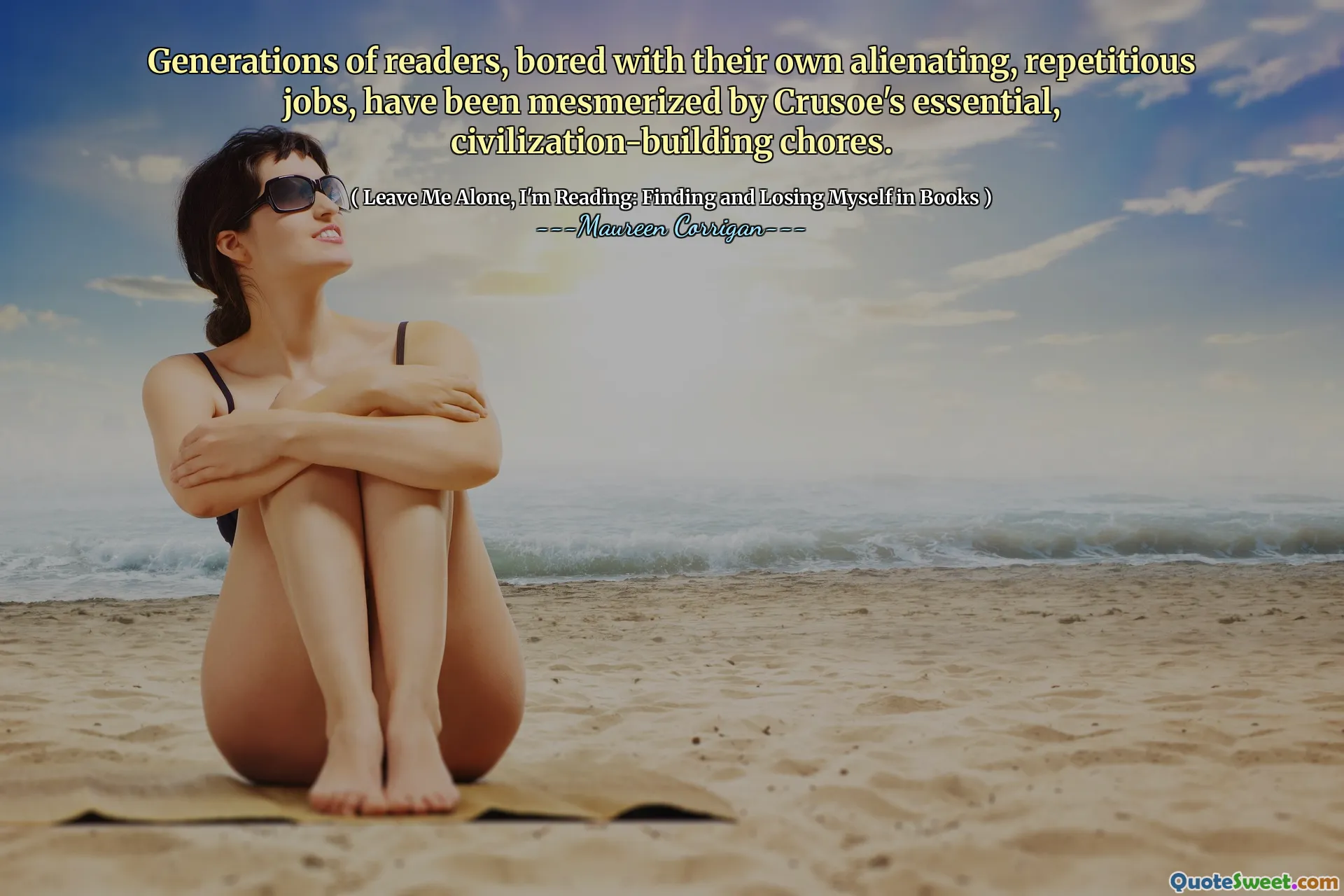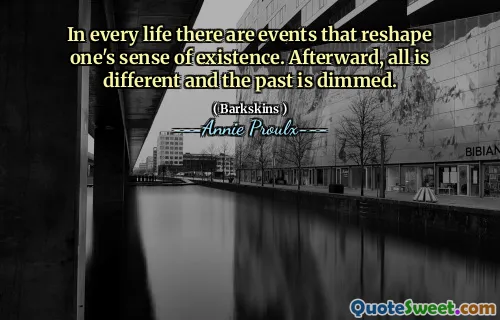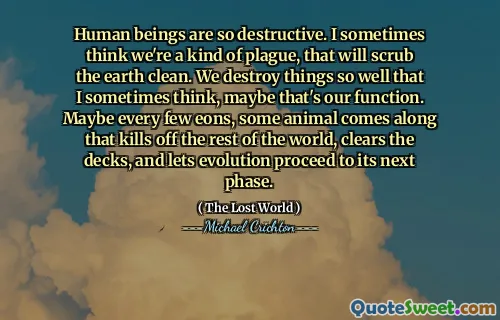
Generations of readers, bored with their own alienating, repetitious jobs, have been mesmerized by Crusoe's essential, civilization-building chores.
The quote draws a compelling parallel between the monotonous routines many people endure in their daily work and the timeless fascination with Robinson Crusoe’s world of survival and civilization-building. It suggests that literature, especially stories like Crusoe's, offers an escape from the alienation and repetitiveness of modern labor. Readers find vicarious fulfillment and a sense of purpose through Crusoe’s efforts to create order from chaos, building a new society on a deserted island. This act of transformation becomes a metaphor for human creativity and resilience, reminding us that even in the most isolating circumstances, the drive to construct and rebuild remains intrinsic to our nature.
The idea that Crusoe’s chores—his craftsmanship, survival skills, and his attempt to establish a semblance of civilization—serve as a hypnotic lure for readers across generations highlights something profound about the human psyche. In a world that often feels disconnected from meaningful work, tales of effort and ingenuity serve as both inspiration and vicarious experience. They amplify our longing for purpose and mastery, especially when mundane jobs strip away these qualities.
By looking at Crusoe’s acts as more than mere survival tasks, the quote underscores the universal appeal of creating order amidst chaos and solitude. It invites reflection on our own quests for meaning in routine, emphasizing that stories of adventure and reconstruction resonate because they mirror our deep-seated desire to shape our environment and destiny. In this way, literature acts as a mirror and a medium—a bridge connecting us to the fundamental human drives of perseverance, innovation, and hope.
Ultimately, the quote encapsulates how fiction can serve as a collective psychological sanctuary, enabling readers to find strength and imagination within stories of building, transforming, and reclaiming what has been lost or left behind.
---Maureen Corrigan---


